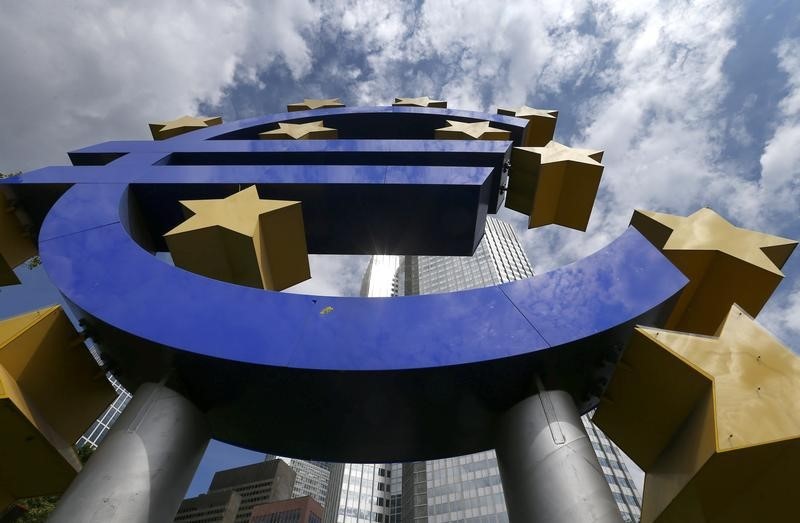By Jan Strupczewski and Balazs Koranyi
BRUSSELS/FRANKFURT (Reuters) - The fall in euro area inflation slowed this month while core figures, which strip out volatile food and energy prices, accelerated, mildly positive news for the European Central Bank as it struggles to revive anaemic price growth.
Annualised inflation picked up to -0.1 percent from -0.2 percent, in line with expectations, as rising food and services prices offset another big fall in energy costs, data from Eurostat showed.
The inflation tick-up, presaged by surprisingly high German figures on Wednesday, is the latest in a string of slightly positive data for the 19-nation currency bloc, indicating that the euro zone's tepid domestic recovery remains on track despite headwinds from abroad.
The ECB has been battling ultra-low inflation for years and unveiled an unexpectedly big stimulus package this month, cutting rates deeper into negative territory, expanding monthly asset buys by a third and offering free loans to banks.
Core inflation, a figure closely watched to gauge underlying trends, picked up to 0.9 percent from 0.8 percent, broadly in line with its recent trend and with expectations, alleviating some fears that low energy prices are feeding into the cost of other goods and services.
The ECB especially fears these so-called second-round deflationary effects from falling crude prices as they could lead to low price growth becoming entrenched.
Still, inflation remains far below the ECB's target of nearly 2 percent and is not expected to return to target over the next three years. This indicates the central bank will have to keep rates exceptionally low and keep the door open to even more stimulus.
Indeed, the ECB expects inflation to average just 0.1 percent this year before a pickup in 2017. But the forecasts could prove overly pessimistic, analysts say, as the bank assumed Brent crude (LCOc1) prices of $34.9 for the year, more than 10 percent below the prevailing level.
Crude oil prices have fallen by two-thirds over the past two years and futures point to a slow rise for the rest of the decade, keeping a lid on price growth.
Still, recent data about the euro zone's economic health indicate that the bloc's domestic recovery is on track despite headwinds coming from a slowdown in emerging markets, particularly China.

Indeed, euro zone lending grew at its fastest pace since late 2011 last month, March PMI surveys beat market expectations and consumer spending was solid, all suggesting that domestic consumption would remain the engine of growth this year much as in 2015.